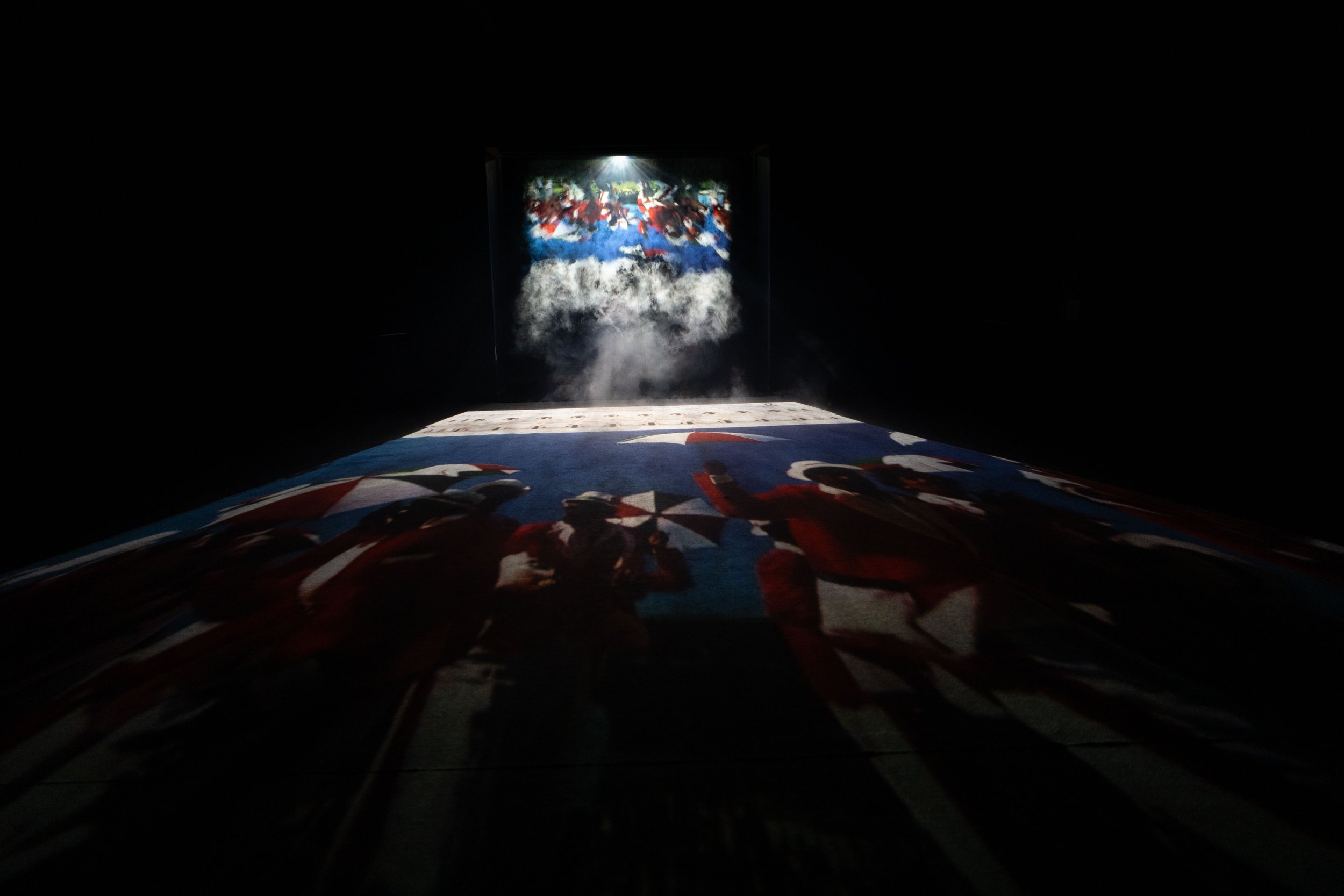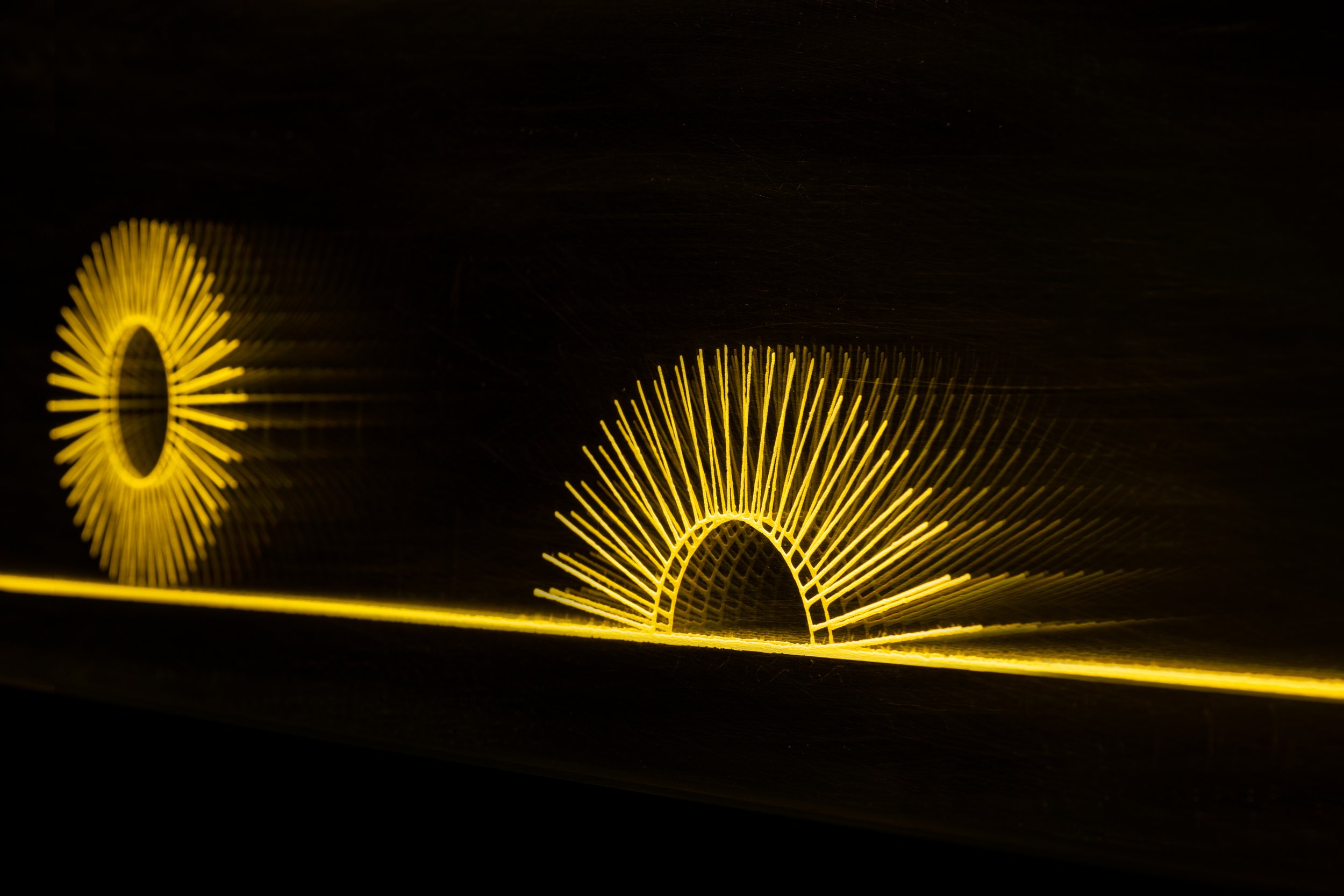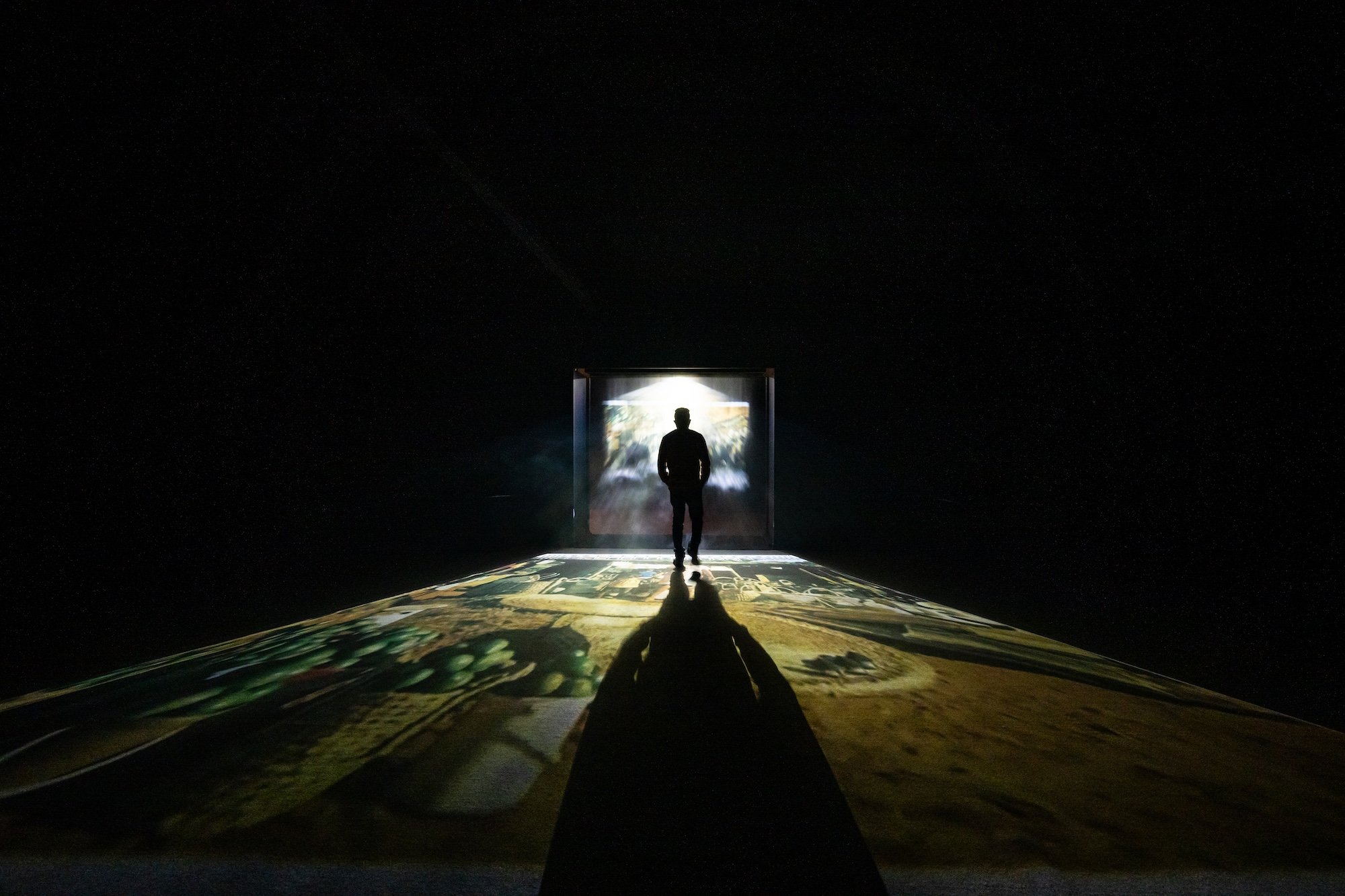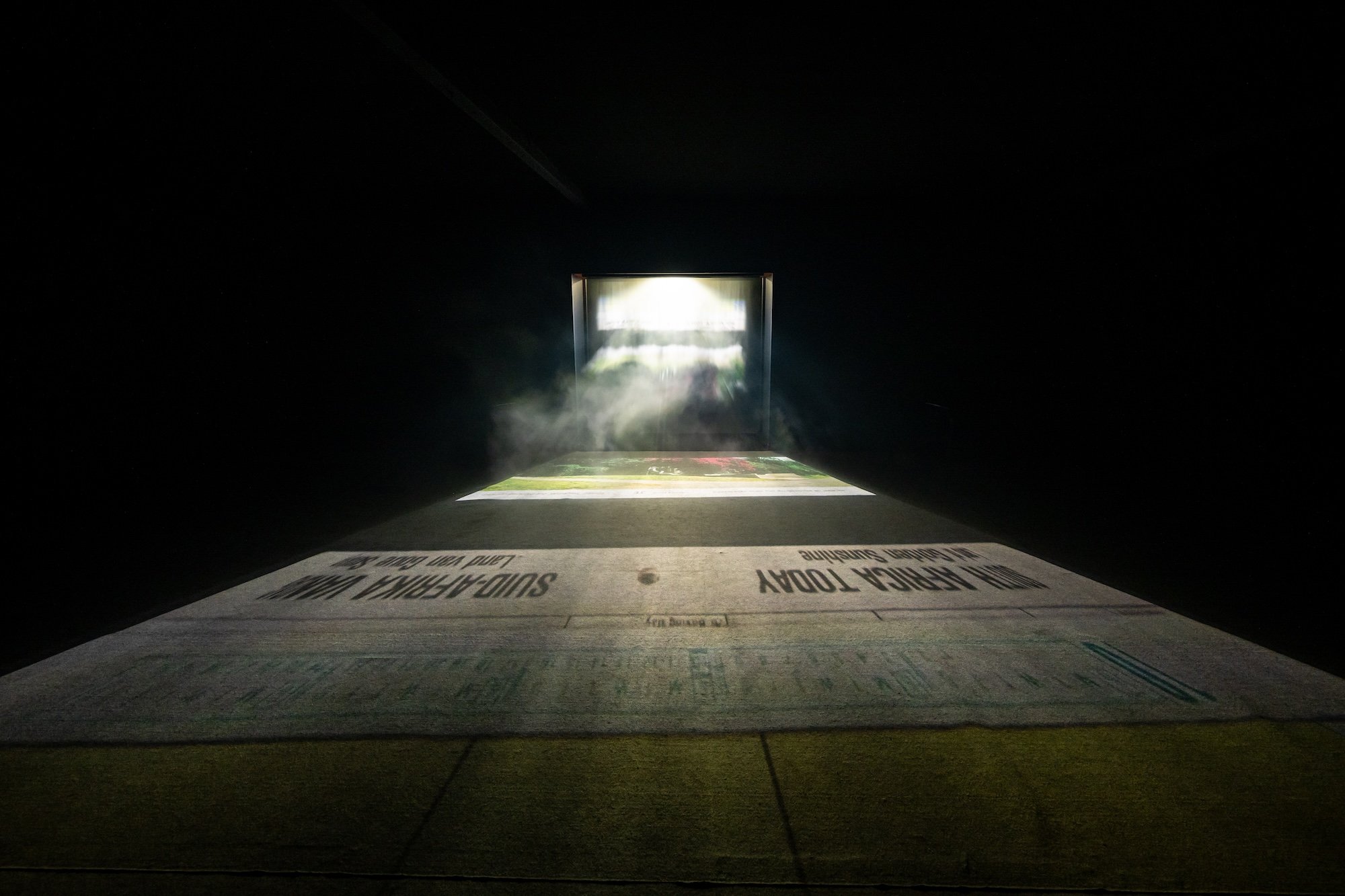We were thrilled to announce our 7th Special Artist Project at this 15th edition of India Art Fair, showcasing Antumbra (2024) by Jitish Kallat
1 - 4 February 2024
NSIC Grounds, Okhla
Booth D10
Supported by
JSW Group and FICA Advisory Board Members
Tarana Sawhney, Radhika Chopra and Sunita Choraria
An immersive installation, it chronicles the life and imprisonment of South Africa’s first black president Nelson Mandela, mapped through his desk calendars from 1976 to 1989. Accompanied by annotations, readings and records maintained over years by Mandela himself, this work follows Kallat's Public Notice trilogy (2002–2010) and Covering Letter (2012), where a historical utterance or document serves as a site for deliberation.
The installation included a replica of a note with calculations by Nelson Mandela, South Africa's first black president, and a numerical autobiography that captures his complex life in stark figures. Each sum signifies key milestones: years in prison, his age at initial detention, and his age upon release. Alongside this arithmetic is a video of Mandela’s blood pressure readings, carefully noted in his prison calendars. These inscriptions denote cardiac time within the perpetual flow of calendar time. Additionally, the work highlights a recurring motif of the sun and moon in transition, forming cycles of days and nights visible across multiple pages of these calendars.
At the core of Antumbra are Nelson Mandela's desk calendars, spanning 1976 to 1989. These calendars, chronicling the relentless passage of time within the confines of his prison cell, coincide with tumultuous events in South African and global history. For the most part, they remain blank and function as diaries, recording recent dreams, prison visits, books read, and personal health details. Some historical events are noted, while others remain unmentioned, and still others are recorded after a delay. For instance, the week of the pivotal 1976 Soweto Uprising is conspicuously blank, as are the weeks that follow. This could imply either limited information reaching Mandela on the isolated Robben Island or deliberate omissions due to surveillance. Conversely, an entry dated 13th June 1980, details the Indian election results, including the vote shares of various political parties.
In stark contrast to the confinement of prison and the calendar's vacant pages, the accompanying images unveil breathtaking beauty: undulating hills, lush meadows, serene beaches, magnificent cathedrals, and mystical forests bathed in golden sunshine. The tourist department's recurring stamp on the calendars, "It's sunny today in South Africa," accentuates the profound dichotomy between confinement and freedom. Antumbra draws its title from the vocabulary of light and shadow, vision and occlusion. It points to an eclipse phase where the observer stands just beyond the umbra, outside the core shadow, where a ring-shaped, annular light begins to appear.
Support:
Over the past 17 years, the Foundation for Indian Contemporary Art (FICA) has worked to enhance opportunities for artists, while establishing a continuous dialogue between the arts and new publics through art education, grants-giving, exhibitions and active participation in public art projects. Since 2017, FICA’s special artist projects at India Art Fair have been an opportunity to experiment with immersive installations and experiences, engaging with a range of audiences. These projects are supported by FICA Advisory Board members—Tarana Sawhney, Radhika Chopra and Sunita Choraria—who continue to champion FICA’s efforts and engagements at the Fair.
We are grateful for the support of the JSW Group and Ms Sangita Jindal in realising this project. The JSW Group is ranked among India's leading business houses and their presence spreads across various sectors, which include Steel, Energy, Infrastructure, Cement, Paints, Venture Capital and Sports. It also has a strong social development focus, which is demonstrated through the noteworthy work of JSW Foundation, the CSR arm of the JSW Group, and is led by Chairperson Mrs. Sangita Jindal. As part of its Art, Culture and Heritage engagements, JSW has supported the restoration of the Chandramouleshwara Temple at the UNESCO World Heritage Site of Hampi; David Sassoon Library and Reading Room and Keneseth Eliyahoo Synagogue in Mumbai and is currently restoring Shalimar Bagh and Nishat Bagh in Srinagar. Mrs. Sangita Jindal has been an ardent patron of the arts. The founder of Art India Magazine, she has also been a supporter of institutions and initiatives integral to the arts and culture landscape of the Indian subcontinent, over the past three decades.









